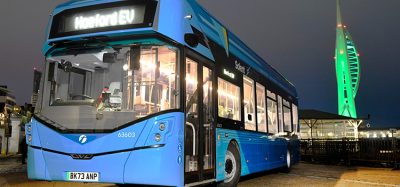First Bus and WYCA boost Bramley depot with £11.2 million investment
- Like
- Digg
- Del
- Tumblr
- VKontakte
- Buffer
- Love This
- Odnoklassniki
- Meneame
- Blogger
- Amazon
- Yahoo Mail
- Gmail
- AOL
- Newsvine
- HackerNews
- Evernote
- MySpace
- Mail.ru
- Viadeo
- Line
- Comments
- Yummly
- SMS
- Viber
- Telegram
- Subscribe
- Skype
- Facebook Messenger
- Kakao
- LiveJournal
- Yammer
- Edgar
- Fintel
- Mix
- Instapaper
- Copy Link
Posted: 20 May 2024 | Intelligent Transport | No comments yet
First Bus and WYCA’s latest £11.2 million investment in Bramley depot will see half the fleet transition to zero-emission by 2024, advancing West Yorkshire’s green transport goals.


Credit: First Bus
First Bus and the West Yorkshire Combined Authority (WYCA) have announced a significant investment of £11.2 million into the bus company’s Bramley depot, aiming to transition half of the fleet to zero-emission vehicles by the end of 2024. This investment marks a crucial step towards sustainable public transport and aligns with broader environmental goals.
The funding, comprising £3.4 million secured through a Department for Transport (DfT) Zero Emission Bus Regional Area (ZEBRA) project variation request, alongside First Bus’s £7.8 million commitment, will facilitate the introduction of 22 additional double-decker electric vehicles (EV) at the Bramley depot. This expansion will increase the depot’s total electric fleet to 79 buses.
The Bramley and Stanningley Ward councillors, Tom Hinchcliffe and Kevin Ritchie, recently visited the depot, now home to West Yorkshire’s largest fleet of zero-emission vehicles, which initially launched in March 2024 with 57 electric buses. This development underscores a rapid shift towards sustainable transport in the region.
Councillor Peter Carlill, Deputy Chair of the WYCA Transport Committee, said: “These state-of-the-art electric buses will help West Yorkshire towards its goal of becoming a net zero economy by 2038, as well as encouraging more people to use public transport.”
Greater Wellington backs council for urgent bus priority and transport corridor Developments
Megan Hope, Operations Director of First Bus in North & West Yorkshire, said: “It was a pleasure to show councillors what our team together with suppliers has achieved with the depot transformation and the introduction of our EV fleet. This will play an important part in skilled green jobs for the future and supporting the wider community.”
The existing electric fleet, consisting of 57 buses, has already proven its environmental benefits, saving over 4,000 tonnes of CO2e annually. Each vehicle contributes significantly to reducing emissions, with features like audio-visual next stop technology and USB charging points enhancing the overall passenger experience.
The announcement reflects a broader trend in the transport sector towards sustainable practices, with electric buses playing a pivotal role in achieving ambitious climate targets while improving the quality of life for residents in the region.
Related topics
Accessibility, Air Quality, Alternative Power, Public Transport, Sustainable Urban Transport
Related modes
Bus & Coach
Related countries
United Kingdom
Related organisations
Department for Transport (DfT), First Bus, First Bus in North & West Yorkshire, West Yorkshire Combined Authority (WYCA)
Related people
Megan Hope, Peter Carlill








